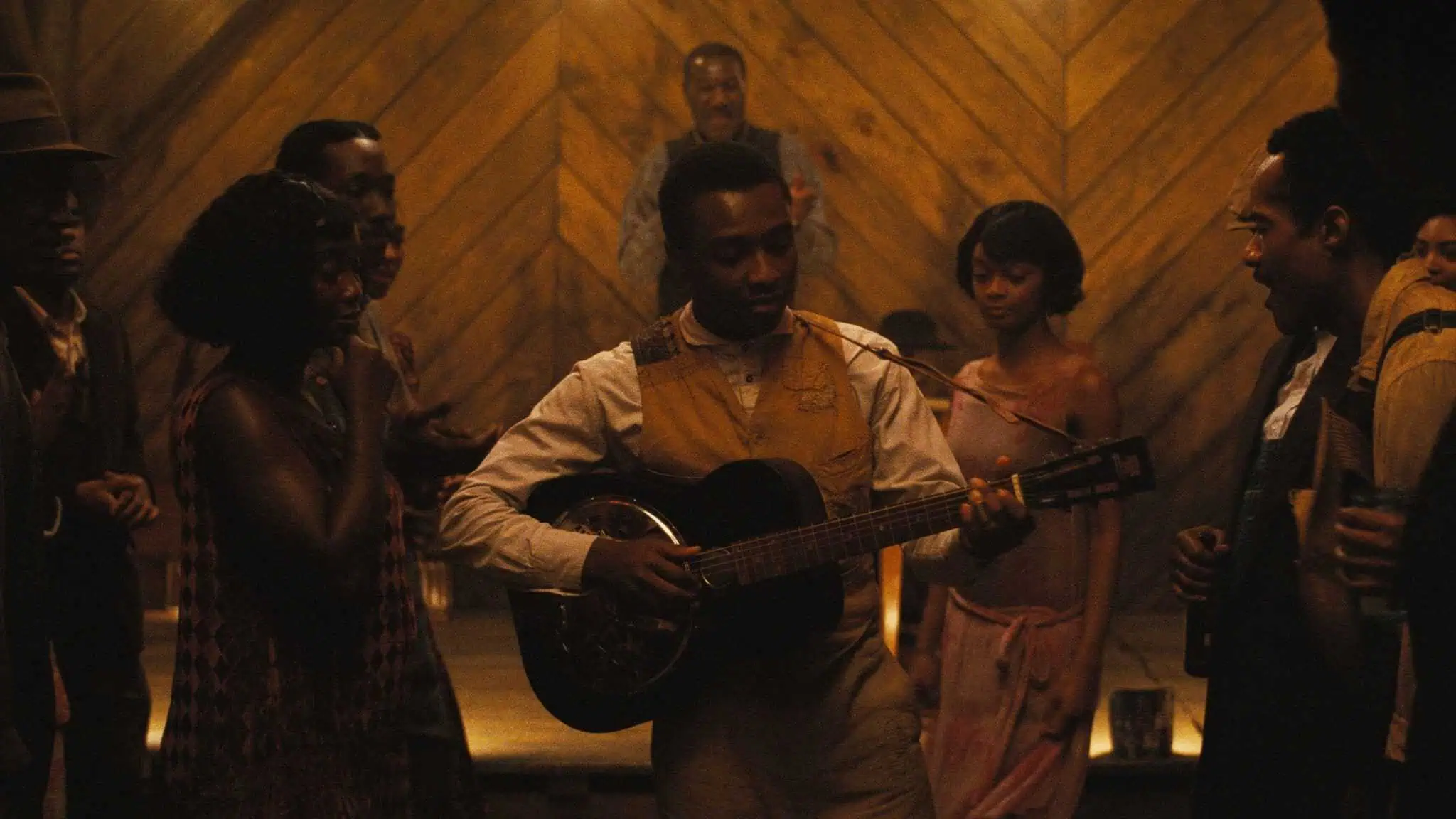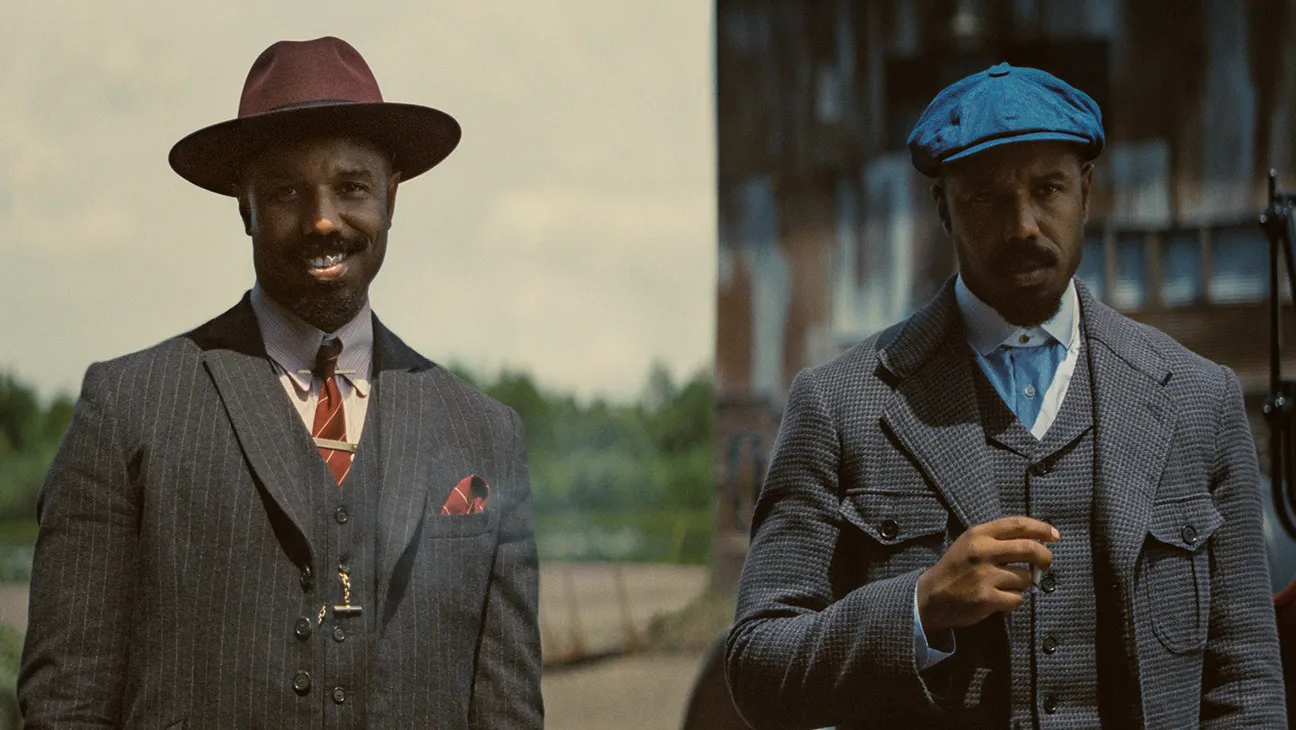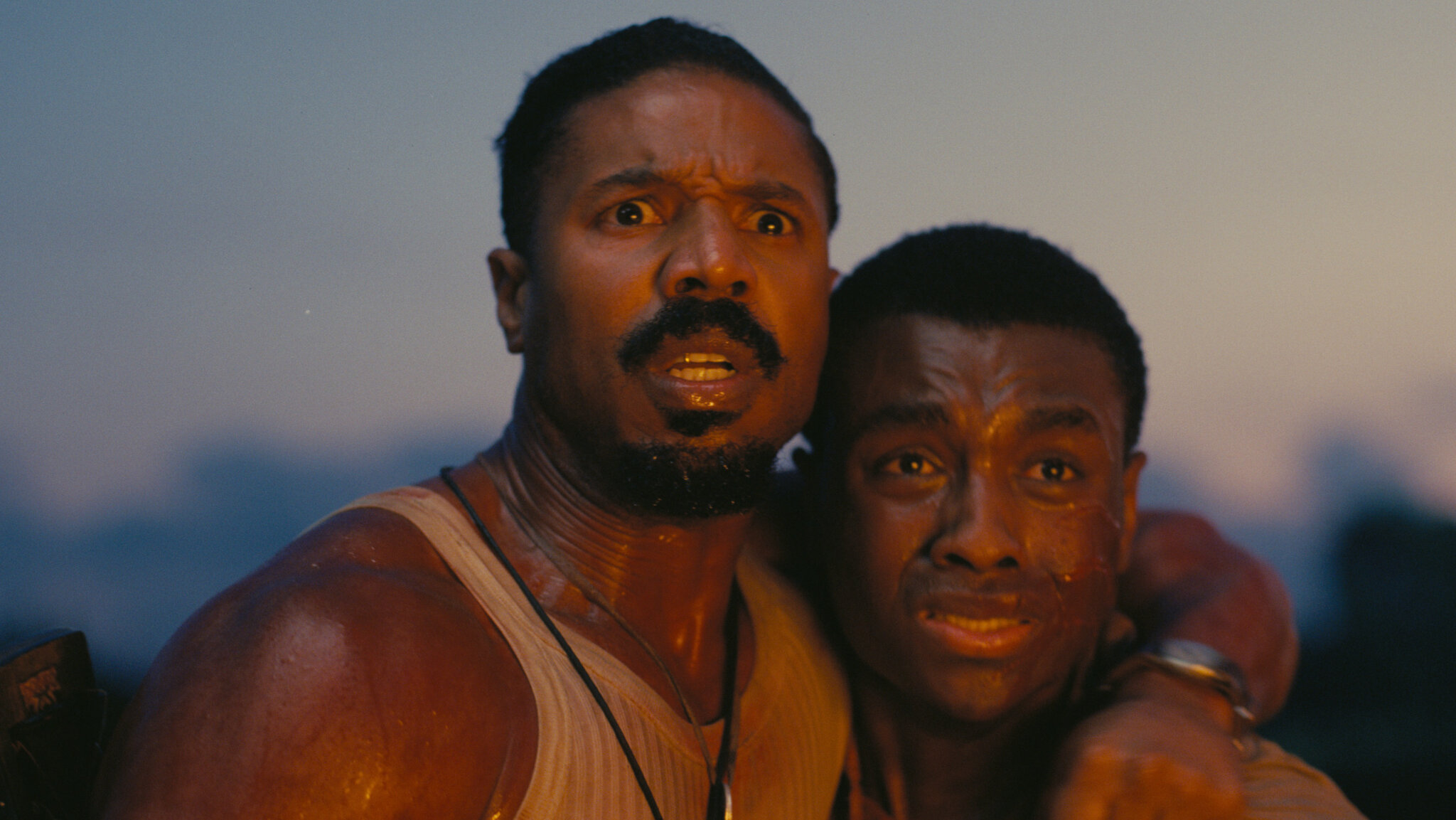Sinners | Directed by Ryan Coogler // Starring Michael B. Jordan, Jack O’Connell, Miles Caton, Hailee Steinfeld, Wunmi Mosaku, and Delroy Lindo
Set the mood with some music!
Summary (Spoiler-free): Sinners is a bold, genre-defying film from director Ryan Coogler that blends horror, history, and music into one of the most original cinematic experiences in recent memory. Set in the American South, the story follows a pair of outlaws who want to start up a juke joint. When a mysterious outsider arrives with ties to the past — and dangerous ambitions — the lines between predator and prey, justice and survival, begin to blur.

Ryan Coogler’s Sinners isn’t just the best movie of the year so far—it’s one of the best films I’ve ever seen. Period. It’s a masterclass in genre-blending, a love letter to Black culture, a celebration of blues music, and, yes, a vampire movie. That combination might sound impossible, but the way Coogler weaves these elements together makes it feel inevitable. Sinners is bold, beautiful, and brimming with purpose.

Coogler’s direction is sublime. He’s always been a fan of long takes, but here he pushes that style to new heights. One sequence—a breathtaking, three-minute shot that moves through decades of Black musical history—might be one of the most stunningly choreographed scenes I’ve ever seen. Visually and emotionally, it hits hard.
The story itself is compelling, but it’s what lies beneath that gives it weight. On the surface, Sinners is a vampire tale, but that’s just a disguise. This is an allegory about racism, cultural appropriation, and the theft of Black art. It draws a powerful line between the history of blues music — born from Black pain, passed through generations, and often co-opted by white America — and the myth of the vampire: a being that survives by draining others of their life and legacy. That’s not just clever — it’s brilliant.
Michael B. Jordan is jaw-dropping in dual roles. He gives two entirely distinct performances that showcase his range and depth. If the rules allowed, he’d deserve two separate Oscar nominations. He’s that good.
Jack O’Connell delivers the films best performance, playing a character that’s as layered as it is unsettling. On one level, his character is a clear and thoughtful parallel to Black culture — oppressed, exploited, and stripped of agency by a dominant force. But what makes the role so compelling is the way he turns that dynamic inward. He’s a survivor of cultural theft who now perpetuates it, doing unto others as was done to him. That contradiction of being both victim and colonizer is portrayed with haunting precision. O’Connell walks that tightrope with chilling ease, never veering into caricature, always grounding the horror in something deeply human. It’s a towering, tragic performance that lingers long after the credits roll.
Then there’s Miles Caton, who plays Sammy — his first role — and he’s phenomenal. Not only is his acting mature and magnetic, but his voice stays with you long after the credits roll. Other standouts include Hailee Steinfeld, clearly having a blast with her character, Wunmi Mosaku, who is quietly mesmerizing, and Delroy Lindo as Delta Slim steals every single scene he’s in.
Music is the soul of this film, and Ludwig Göransson delivers another career-defining score. From blues-infused ballads to haunting instrumentals, it drives the emotion of every frame. There’s a very real chance he could walk away with his third Oscar for this one.
On the technical side, everything sings. The editing, the sound design, the production values — it’s all top-tier. Every department shows up. This is what happens when a director has a vision and the right team to execute it.
This isn’t really a knock, but the last 40 minutes of the film are so strong, I found myself wishing we had more time with the vampires and the juke joint crew. The build-up gives so much richness to each character — their motivations, their backstories, their relationships — that when we hit the climax, it felt like we rushed just a bit. I wanted more time to sit in it.
Also (slight spoiler here), the first time I watched the scene where Li Jun Li, who plays Grace Chow, screams for the vampires to come in, I rolled my eyes thinking it was a pretty cheap way to keep the movie going. But after rewatching, I’ve completely changed my perspective. She wasn’t being reckless — she was protecting her daughter. That moment is complex, tragic, and ultimately human. Any mother would have done the same.

I’ll say this as a white man who is not an expert on race or politics: if you didn’t like this movie because you’re not into vampires, or you thought it was slow or something like that — that’s fine. Art is subjective. But if your takeaway was "keep politics out of movies," then you’re missing the entire point. Sinners doesn’t inject politics into the story — it is the story. This is what art is supposed to do: challenge, reveal, reflect. That's all I have to say about that.
I’ve seen Sinners ten times in theaters. And every time, it gets better. I catch more, I feel more, I understand more. Coogler didn’t just make a genre movie. He made a deeply personal film — one with heart, soul, scares, and lived experience stitched into every frame. Sinners is a work of art, a cultural reckoning, and in my opinion, the best film of the decade.